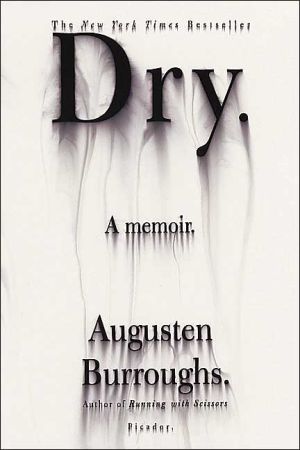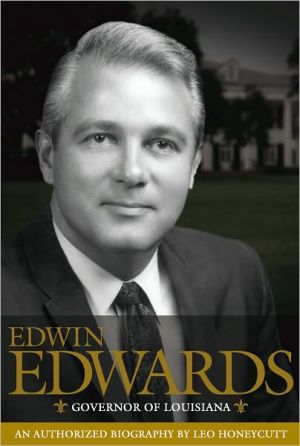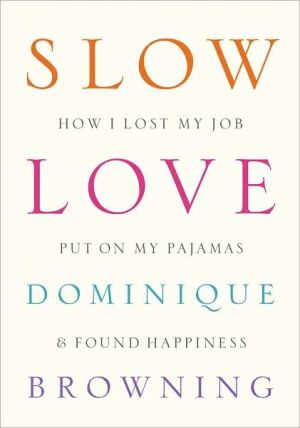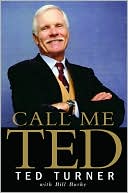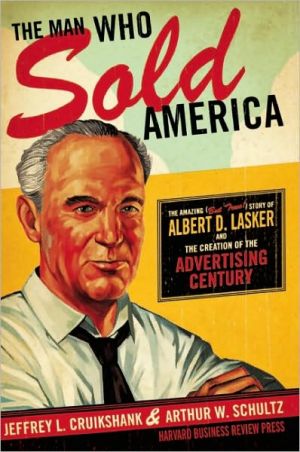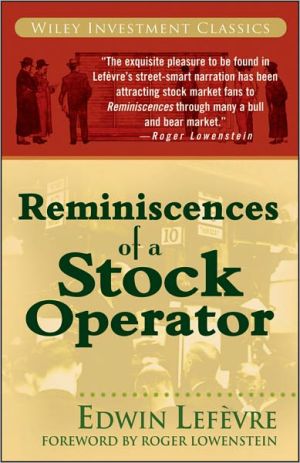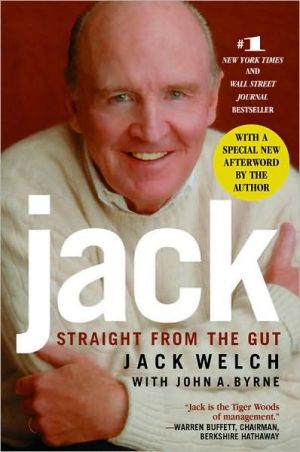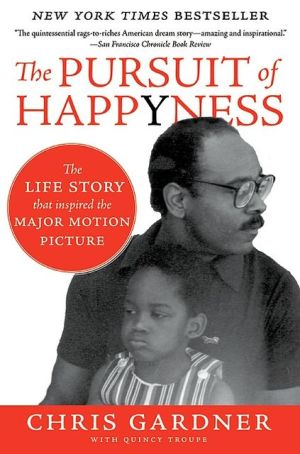Dry: A Memoir
You may not know it, but you've met Augusten Burroughs. You've seen him on the street, in bars, on the subway, at restaurants: a twenty-something guy, nice suit, works in advertising. Regular. Ordinary. But when the ordinary person had two drinks, Augusten was circling the drain by having twelve; when the ordinary person went home at midnight, Augusten never went home at all. Loud, distracting ties, automated wake-up calls, and cologne on the tongue could only hide so much for so long. At the...
Search in google:
From New York Times bestselling author Augusten Burroughs comes a dark and hilarious memoir that takes up where RUNNING WITH SCISSORS left off: the life of a young man with a twisted past trying to wrestle with his own demons. The New York Times Mr. Burroughs remains ebulliently glib when it's useful, as befits his advertising skills. But Dry also deals with two deaths: his lover's and, very nearly, his own. These are no laughing matters, but Mr. Burroughs remains adept at mixing comedy and calamity. — Janet Maslin
DRY\ \ By AUGUSTEN BURROUGHS \ ST. MARTIN'S PRESS\ Copyright © 2003 Augusten Burroughs\ All right reserved.\ ISBN: 0312272057 \ \ \ \ Chapter One\ \ \ \ Sometimes when you work in advertising you'll get a product that's really garbage and you have to make it seem fantastic, something that is essential to the continued quality of life. Like once, I had to do an ad for hair conditioner. The strategy was: Adds softness you can feel, body you can see. But the thing is, this was a lousy product. It made your hair sticky and in focus groups, women hated it. Also, it reeked. It made your hair smell like a combination of bubble gum and Lysol. But somehow, I had to make people feel that it was the best hair conditioner ever created. I had to give it an image that was both beautiful and sexy. Approachable and yet aspirational.\ Advertising makes everything seem better than it actually is. And that's why it's such a perfect career for me. It's an industry based on giving people false expectations. Few people know how to do that as well as I do, because I've been applying those basic advertising principles to my life for years.\ When I was thirteen, my crazy mother gave me away to her lunatic psychiatrist, who adopted me. I then lived a life of squalor, pedophiles, no school and free pills. When I finally escaped, I presented myself to advertising agencies as a self-educated, slightly eccentric youth, filled with passion, bursting with ideas. I left out the fact that I didn't know how to spell or that I had been giving blowjobs since I was thirteen.\ Not many people get into advertising when they're nineteen, with no education beyond elementary school and no connections. Not just anybody can walk in off the street and become a copywriter and get to sit around the glossy black table saying things like, "Maybe we can get Molly Ringwald to do the voice-over," and "It'll be really hip and MTV-ish." But when I was nineteen, that's exactly what I wanted. And exactly what I got, which made me feel that I could control the world with my mind.\ I could not believe that I had landed a job as a junior copywriter on the National Potato Board account at the age of nineteen. For seventeen thousand dollars a year, which was an astonishing fortune compared to the nine thousand I had made two years before as a waiter at a Ground Round.\ That's the great thing about advertising. Ad people don't care where you came from, who your parents were. It doesn't matter. You could have a crawl space under your kitchen floor filled with little girls' bones and as long as you can dream up a better Chuck Wagon commercial, you're in.\ And now I'm twenty-four years old, and I try not to think about my past. It seems important to think only of my job and my future. Especially since advertising dictates that you're only as good as your last ad. This theme of forward momentum runs through many ad campaigns.\ A body in motion tends to stay in motion. (Reebok, Chiat/Day.)\ Just do it. (Nike, Weiden and Kennedy.)\ Damn it, something isn't right. (Me, to my bathroom mirror at four-thirty in the morning, when I'm really, really plastered.)\ \ \ It's Tuesday evening and I'm home. I've been home for twenty minutes and am going through the mail. When I open a bill, it freaks me out. For some reason, I have trouble writing checks. I postpone this act until the last possible moment, usually once my account has gone into collection. It's not that I can't afford the bills-I can-it's that I panic when faced with responsibility. I am not used to rules and structure and so I have a hard time keeping the phone connected and the electricity turned on. I place all my bills in a box, which I keep next to the stove. Personal letters and cards get slipped into the space between the computer on my desk and the printer.\ My phone rings. I let the machine pick up.\ "Hey, it's Jim ... just wanted to know if you wanna go out for a quick drink. Gimme a call, but try and get back-"\ As I pick up the machine screeches like a strangled cat. "Yes, definitely," I tell him. "My blood alcohol level is dangerously low."\ "Cedar Tavern at nine," he says.\ Cedar Tavern is on University and Twelfth and I'm on Tenth and Third, just a few blocks away. Jim's over on Twelfth and Second. So it's a fulcrum between us. That's one reason I like it. The other reason is because their martinis are enormous; great bowls of vodka soup. "See you there," I say and hang up.\ Jim is great. He's an undertaker. Actually, I suppose he's technically not an undertaker anymore. He's graduated to coffin salesman, or as he puts it, "pre-arrangements." The funeral business is rife with euphemisms. In the funeral business, nobody actually "dies." They simply "move on," as if traveling to a different time zone.\ He wears vintage Hawaiian shirts, even in winter. Looking at him, you'd think he was just a normal, blue-collar Italian guy. Like maybe he's a cop or owns a pizza place. But he's an undertaker, through and through. Last year for my birthday, he gave me two bottles. One was filled with pretty pink lotion, the other with an amber fluid. Permaglow and Restorative: embalming fluids. This is the sort of conversation piece you simply can't find at Pottery Barn. I'm not so shallow as to pick my friends based on what they do for a living, but in this case I have to say it was a major selling point.\ A few hours later, I walk into Cedar Tavern and feel immediately at ease. There's a huge old bar to my right, carved by hand a century ago from several ancient oak trees. It's like this great big middle finger aimed at nature conservationists. Behind the bar, the wall is paneled in this same wood, inlaid with tall etched mirrors. Next to the mirrors are dull brass light fixtures with stained-glass shades. No bulb in the place is above twenty-five watts. In the rear, there are nice tall wooden booths and oil paintings of English bird dogs and anonymous grandfathers posed in burgundy leather wing chairs. They serve a kind of food here: chicken-fried steak, fish and chips, cheeseburgers and a very lame salad that features iceberg lettuce and croutons from a box. I could live here. As if I didn't already.\ Even though I'm five minutes early, Jim's sitting at the bar and already halfway through a martini.\ "What a fucking lush," I say. "How long have you been here?"\ "I was thirsty. About a minute."\ He appears to be eyeing a woman who is sitting alone at a table near the jukebox. She wears khaki slacks, a pink-and-white striped oxford cloth shirt and white Reeboks. I instantly peg her as an off-duty nurse. "She's not your type," I say.\ He gives me this how-the-hell-do-you-know look. "And why not?"\ "Look at what she's drinking. Coffee."\ He grimaces, looks away from her and takes another sip of his drink.\ "Look, I can't stay out late tonight because I have to be at the Met tomorrow morning at nine."\ "The Met?" he asks incredulously. "Why the Met?"\ I roll my eyes, wag my finger in the air to get the bartender's attention. "My client Fabergé is creating a new perfume and they want the ad agency to join them tomorrow morning and see the Fabergé egg exhibit as inspiration." I order a Ketel One martini, straight up with an olive. They use the tiny green olives here; I like that. I despise the big fat olives. They take up too much space in the glass.\ "So I have to be there in a suit and look at those fucking eggs all morning. Then we're all going to get together the day after tomorrow at the agency and have a horrific meeting with their senior management. Some global vision thing. One of those awful meetings you dread for weeks in advance." I take the first sip of my martini. It feels exactly right, like part of my own physiology. "God, I hate my job."\ "You should get a real job," Jim tells me. "This advertising stuff is putrid. You spend your days waltzing around the Met looking at Fabergé eggs. You make wads of cash and all you do is complain. Jesus, and you're not even twenty-five yet." He sticks his thumb and index finger in the glass and pinches the olive, which he then pops in his mouth.\ I watch him do this and can't help but think, The places those fingers have been.\ "Why don't you try selling a seventy-eight-year-old widow in the Bronx her own coffin?"\ We've had this conversation before, many times. The undertaker feels superior to me, and actually is. He is society's Janitor in a Drum. He provides a service. I, on the other hand, try to trick and manipulate people into parting with their money, a disservice.\ "Yeah, yeah, order us another round. I gotta take a leak." I walk off to the men's room, leaving him at the bar.\ We have four more drinks at Cedar Tavern. Maybe five. Just enough so that I feel loose and comfortable in my own skin, like a gymnast. Jim suggests we hit another bar. I check my watch: almost ten-thirty. I should head home now and go to sleep so I'm fresh in the morning. But then I think, Okay, what's the latest I can get to sleep and still be okay? If I have to be there at nine, I should be up by seven-thirty, so that means I should get to bed no later than-I begin to count on my fingers because I cannot do math, let alone in my head-twelve-thirty. "Where you wanna go?" I ask him.\ "I don't know, let's just walk."\ I say, "Okay," and we head outside. As soon as I step into the fresh air, something in my brain oxidizes and I feel just the slightest bit tipsy. Not drunk, not even close. Though I certainly wouldn't attempt to operate a cotton gin.\ We end up walking down the street for two blocks and heading into this place on the corner that sometimes plays live jazz. Jim's telling me that the absolute worst thing you can encounter as an undertaker is "a jumper."\ "Two Ketel One martinis, straight up with olives," I tell the bartender and then turn to Jim. "What's so bad about jumpers? What?" I love this man.\ "Because when you move their limbs, the bones are all broken and they slide around loose inside the skin and they make this sort of ..." Our drinks arrive. He takes a sip and continues, "... this sort of rumbling sound."\ "That's so fucking horrifying," I say, delighted. "What else?"\ He takes another sip, creases his forehead in thought. "Okay, I know-you'll love this. If it's a guy, we tie a string around the end of his dick so that it won't leak piss."\ "Jesus," I say. We both take a sip from our drinks. I notice that my sip is more of a gulp and I will need another drink soon. The martinis here are shamefully meager. "Okay, give me more horrible," I tell him.\ He tells me how once he had a female body with a decapitated head and the family insisted on an open casket service. "Can you imagine?" So he broke a broomstick in half and jammed it down through the neck and into the meat of the torso. Then he stuck the head on the other end of the stick and kind of pushed.\ "Wow," I say. He's done things that only people on death row have done.\ He smiles with what I think might be pride. "I put her in a white cashmere turtleneck and she actually ended up looking pretty good." He winks at me and plucks the olive from my drink. I do not take another sip from this particular glass.\ We have maybe five more drinks before I check my watch again. Now it's a quarter of one. And I really need to go, I'll already be a mess as it is. But that's not what happens. What happens is, Jim orders us a nightcap.\ "Just one shot of Cuervo ... for luck."\ The very last thing I remember is standing on a stage at a karaoke bar somewhere in the West Village. The spotlights are shining in my face and I'm trying to read the video monitor in front of me, which is scrolling the words to the theme from The Brady Bunch. I see double unless I close one eye, but when I do this I lose my balance and stagger. Jim's laughing like a madman in the front row, pounding the table with his hands.\ The floor trips me and I fall. The bartender walks from behind the bar and escorts me offstage. His arm feels good around my shoulders and I want to give him a friendly nuzzle or perhaps a kiss on the mouth. Fortunately, I don't do this.\ Outside the bar, I look at my watch and slur, "This can't be right." I lean against Jim's shoulder so I don't fall over on the tricky sidewalk.\ "What?" he says, grinning. He has a thin plastic drink straw behind each ear. The straws are red, the ends chewed.\ I raise my arm up so my watch is almost pressed against his nose. "Look," I say.\ He pushes my arm back so he can read the dial. "Yikes! How'd that happen? You sure it's right?"\ The watch reads 4:15 A.M. Impossible. I wonder aloud why it is displaying the time in Europe instead of Manhattan.\ Chapter Two\ \ \ \ I arrive at the Metropolitan Museum of Art at a quarter before nine. Fifteen minutes early. I'm wearing a charcoal gray Armani suit and oxblood red Gucci loafers. My head throbs dully behind my eyes, but this has actually become normal. It usually wears off by the end of the day and is completely gone after the first drink of the evening.\ I didn't technically sleep last night, I napped. Even in my drunken stupor of last night, I realized I couldn't show up here this morning looking like a total disaster, so I managed to call 1-800-4-WAKE-UP (You snooze, you lose!) before I laid down on my bed, fully dressed.\ I was awake by six A.M. and still felt drunk. I was making wisecracks to myself in the bathroom, pulling faces. This is when I knew I was still drunk. I just had way too much energy for six A.M. Too much motivation. It was like the drunk side of my brain was trying to act distracting and entertaining, so the business side wouldn't realize it was being held hostage by a drunk.\ I showered, shaved and slicked my hair back with Bumble and bumble Hair Grooming Creme. Then I ran the blowdryer over my head. Afterward, I arranged my hair in such a way that it appeared casual and carefree. A wisp of hair falling across my forehead, which I froze in place with AquaNet. After having gone on more fashion shoots than I care to count, I've learned that terminally unhip AquaNet is the best. The result was hair that looked windblown and casual-unless you happened to touch it. If you touched it, it would probably make a solid knocking sound, like wood.\ I sprayed Donna Karan for Men around my neck and on my tongue to oppose any alcohol breath I might have. Then I walked to the twenty-four-hour restaurant on the corner of Seventeenth and Third for a breakfast of scrambled eggs, bacon and coffee. The fat, I figured, would absorb any toxins.\ As a backup safety measure, I swallowed a handful of Breath Assure capsules and wore a distracting, loud tie.\ \ Continues...\ \ \ \ Excerpted from DRY by AUGUSTEN BURROUGHS Copyright © 2003 by Augusten Burroughs\ Excerpted by permission. All rights reserved. No part of this excerpt may be reproduced or reprinted without permission in writing from the publisher. \ \
\ From Barnes & NobleThe Barnes & Noble Review\ It would come as no surprise to any reader of Augusten Burroughs's first memoir, 2002's critically acclaimed bestseller Running with Scissors, that the adolescent depicted there would reach adulthood with a raft of emotional issues. In his earlier effort Burroughs recounted how, abandoned by his mother at the age of 12 and raised by her unbalanced psychiatrist, he dropped out of school, enjoyed the run of the doctor's dilapidated home, and entered an abusive relationship with the pedophile who lived in the guest house out back. In Dry, Burroughs presents himself in his early 20s, earning six figures a year as a New York City ad copywriter and drinking so much alcohol that it wafts from his pores. Landing in rehab, Burroughs initially resists 12-step bromides. Upon release, however, he recognizes the strength they give him as he confronts the death of a former lover, an affair with a fellow recovering addict, and his own struggles with the temptation to have just one drink. As with any tale of a battle against substance abuse, there is an element of just waiting for the eventual, inevitable relapse. But Burroughs's wit, along with his ultimate success in keeping his demons at bay, makes this a riveting read. Katherine Hottinger\ \ \ \ \ The New York TimesMr. Burroughs remains ebulliently glib when it's useful, as befits his advertising skills. But Dry also deals with two deaths: his lover's and, very nearly, his own. These are no laughing matters, but Mr. Burroughs remains adept at mixing comedy and calamity. — Janet Maslin\ \ \ Publishers WeeklyImagine coming home to find hundreds of empty scotch bottles and 1,452 empty beer bottles in your apartment. This is what Burroughs (Running with Scissors) encountered upon returning from Minnesota's Proud Institute (supposedly the gay alcohol rehab choice). "The truly odd part is that I really don't know how they got there," admits Burroughs in this autobiographical tale of being a prodigy with an extremely successful career in advertising and a drive to get as wasted as possible as often as possible. Burroughs's telling of the tale alternates among hilarious, pathetic, existential and hopeful. It is an earnest and cautionary tale of calamity, brimming with Sedaris-like darkly comic quips: "Making alcoholic friends is as easy as making sea monkeys." Burroughs's slight Southern accent and gentle yet glib delivery should summon empathy on the listener's part that may have been lost with another reader. From Minnesota, Burroughs returns to New York and participates in Alcoholics Anonymous meetings. Like James Frey in the similar yet very different book, A Million Little Pieces (see audio review, below), Burroughs believes that when rehab is over, he must walk into a bar to see if he can resist the temptation to drink. Though not a technique condoned by A.A., it certainly makes for a fascinating listening experience. Simultaneous release with the St. Martin's hardcover (Forecasts, Apr. 21). (June) Copyright 2003 Reed Business Information.\ \ \ \ \ Library JournalBurroughs's memoir of his troubled childhood, Running with Scissors, which was recently issued in paperback, captured considerable attention and even had a run on the New York Times's best sellers list. This sequel is an account of his early adult life as an advertising executive in New York City attempting to recover from alcoholism. He begins his advertising career as a 19-year-old with intelligence and a flair for writing but no education past elementary school. But scars remain from the years with his alcoholic father, his lunatic mother, and her wacky psychiatrist, and drinking slowly becomes the focus of his life. Consuming prodigious amounts of alcohol often leaves him hung over and reeking, causing his employer to urge him to attend rehab for a month. He chooses a hospital for gays in Minnesota and, after a week or so, begins to gain some insight about his drinking. After rehab, he returns to his apartment and begins to gather up the 27 large garbage bags of liquor bottles he has accumulated. With irreverent and humorous touches, Burroughs manages to personalize the difficulties of recovery without ever lapsing into sentimentality. This heartfelt memoir will interest readers who enjoyed his debut and those wanting new insights into addiction and recovery. Recommended for large public libraries.-Nancy R. Ives, SUNY at Geneseo Copyright 2003 Reed Business Information.\ \ \ \ \ Kirkus ReviewsLike the alcohol he so enjoys, Burroughs’s story of getting dry will go straight into your bloodstream and leave you buzzing, exhilarated, and wiped out. Burroughs is a malcontented, successful advertising copywriter: in his 20s, gay, living in Manhattan, and owner of a childhood that the word "nightmare" doesn't even begin to cover (as described in Running With Scissors, 2002). Burroughs is an alcoholic, a true-blue, two-fisted, drink-till-you-see-the-spiders-on-the-wall alcoholic. He is not, as he would say, the man you’d want operating the cotton gin—he is funny and dark. This is his story of trying to keep the next drink from coming. Declaring he's "vain and shallow"—"If I were straight, I am certain I would be one of those guys who goes to wet T-shirt contests and votes with great enthusiasm"—he’s quick to strike a pose to admire his silhouette; but in his own half-mad way, he's an original, a step aslant of the cutting edge, and wonderfully capable of expressing the miseries and sublimities of detox. It starts with his agreement—dry out, or get fired—to enter rehab; he chooses a gay clinic in Minnesota: "a rehab hospital run by fags will be hip. Plus there's the possibility of good music and sex." Reality quickly intrudes when the clinic staff checks him for cologne ("Oh, you'd be surprised by the things alcoholics will try and sneak in here to drink") and proceeds along a circuitous path thereafter, with plenty of opportunities for cliffhanging—bad decisions in his love life; a coworker trying to sabotage his efforts to reform; AA abandonment; his best friend's death; the "alcoholic terrorist" in his head—weaving in and out of gallows humor and ahoned starkness. In the end, it's all up to Burroughs, and to give the end away would be criminal, for this memoir operates on a high level of involvement and suspense. Didn't think you’d ever feel even an ounce of sympathy for—let alone root for—a drunken adman, did you? Meet Mr. Burroughs. Agent: Christopher Schelling/Ralph M. Vicinanza Ltd.\ \ \ \ \ From the Publisher"We not only laugh with him but wind up caring deeply as well. Dry will make readers glad to have Augusten Burroughs in the world, and eager for more."\ —O Magazine\ "Burroughs is a brilliant writer—wickedly funny, painfully honest, and uber-cool. Without cheapening the hard work and commitment recovery requires, he allows the wry hilarity of his experience to shine brighter than the pain and darkness. I haven’t read anything this sharp, hip, or honest in my life. Count me as a lifelong fan of this courageous writer."\ —Elle (Reader's Prize winner for June)\ "Beneath the quick-flowing, funny-sad surface of Burroughs' prose lurks considerable complexity...even more compelling than Burroughs' first outing." —Time\ "Dry is a stylish memoir about a messy life." —Entertainment Weekly\ "Humor and poignancy...we finish the book amazed not only that Burroughs can write so brilliantly, but that he's even alive." —People\ \ \ \ \ \ O Magazine"We not only laugh with him but wind up caring deeply as well. Dry will make readers glad to have Augusten Burroughs in the world, and eager for more."\ \ \ \ \ Time"Beneath the quick-flowing, funny-sad surface of Burroughs' prose lurks considerable complexity...even more compelling than Burroughs' first outing."\ \ \ \ \ Entertainment Weekly"Dry is a stylish memoir about a messy life."\ \ \ \ \ People"Humor and poignancy...we finish the book amazed not only that Burroughs can write so brilliantly, but that he's even alive."\ \
